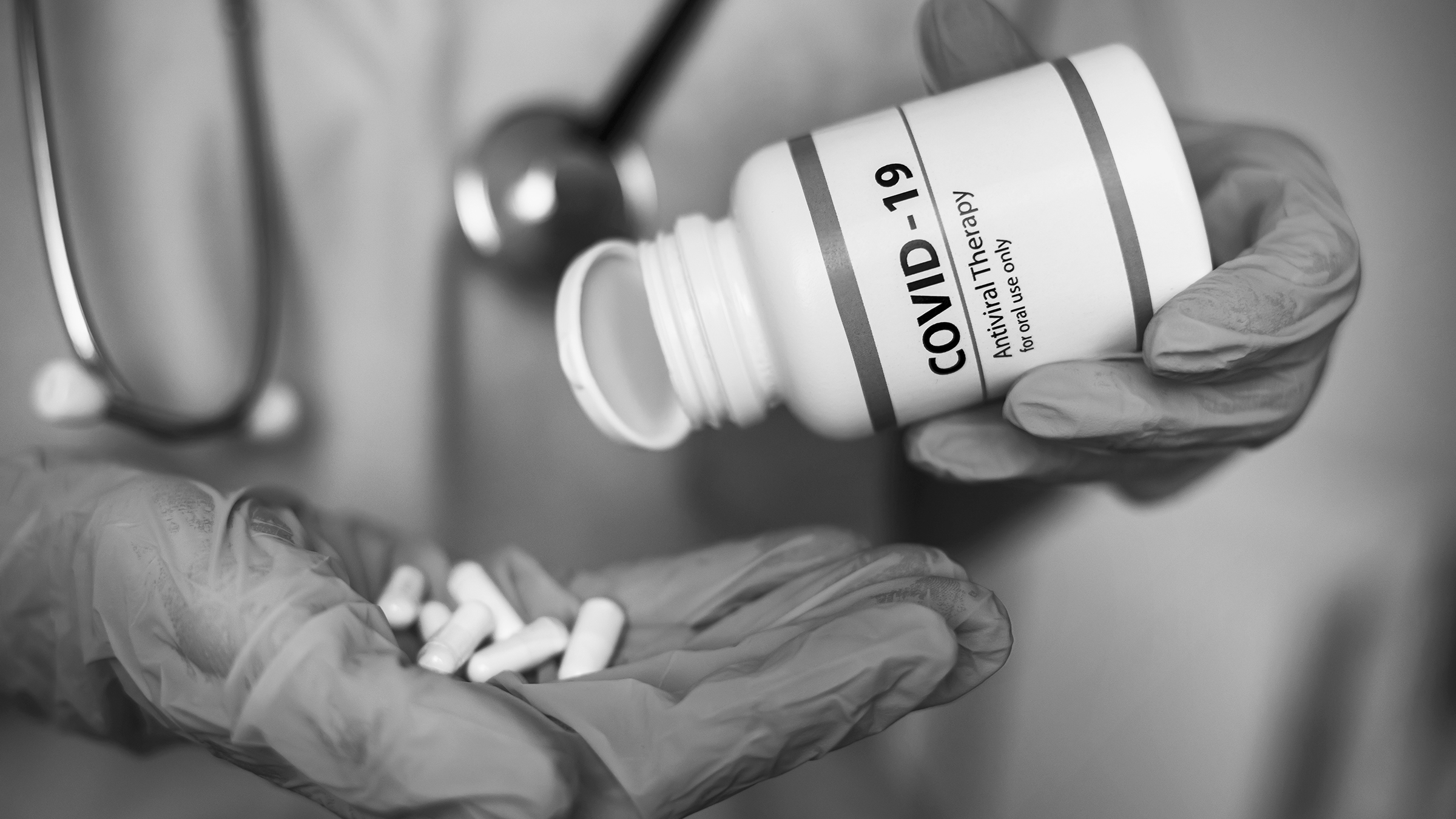
What are COVID-19 treatments?
COVID-19 treatments help stop someone from becoming very sick with COVID-19. Not everyone diagnosed with COVID-19 will need these treatments. They are of most benefit to people who are at the most risk of severe disease or people who are in hospital with severe disease.
Some COVID-19 treatments can be prescribed by your doctor and taken at home. Other treatments can only be administered to patients who are in hospital.
More COVID-19 medicines are undergoing clinical trials and the Therapeutic Goods Administration’s vigorous approval process. For up to date information on recommended treatments and the latest clinical guidelines visit the COVID-19 – National Clinical Evidence Taskforce
For more information about COVID-19 treatments, visit the Department of Health and Aged Care.
The Therapeutic Goods Association also maintains a list of COVID-19 treatments that have been approved for use in Australia.
What oral COVID-19 antiviral medicines can people take at home?
People with COVID-19 who don’t need oxygen and are not in hospital may be eligible for either Lagevrio or Paxlovid if they meet certain criteria. Lagevrio and Paxlovid are oral COVID-19 antiviral medicines (taken by mouth) that help to stop the COVID-19 infection from becoming severe and making you very sick.
Lagevrio and Paxlovid can be prescribed by your doctor or nurse practitioner. You need to start taking these medicines as soon as possible after symptoms of COVID-19 begin for them to be effective. It is best to start taking them within 5 days after your symptoms start.
Learn about the side effects of Lagevrio and Paxlovid by downloading the consumer medicine information leaflets.
How much do oral COVID-19 antiviral medicines cost?
Lagevrio and Paxlovid are listed on the Pharmaceutical Benefits Scheme (PBS). This means these medications are subsidised, and more affordable for people with a medicare card.
The maximum cost for a pharmaceutical benefit item under the PBS at a pharmacy is:
- $30 for general patients
- $7.30 for concession card holders
Who can have oral COVID-19 antiviral medicine?
You may be eligible for an oral COVID-19 antiviral medicine if you:
- are 18 years and older, and
- have COVID-19, and
- are at higher risk of becoming very sick
For assessment of your symptoms and risk factors and to determine your eligibility for COVID-19 oral antivirals or other treatments, use the healthdirect COVID-19 Symptom and Antiviral Eligibility Checker.
Some antiviral COVID-19 treatments are only available in hospital to certain patients at severe risk from COVID-19. However, the oral antiviral treatments Paxlovid and Lagevrio are available outside of hospital under certain conditions.
How do I get oral COVID-19 antiviral medicine?
If you test positive to COVID-19 using either a PCR test or rapid antigen test (RAT), book a telehealth appointment with your doctor. They will advise whether you can have an oral COVID-19 antiviral medicine.
If your doctor recommends that you take an oral COVID-19 antiviral medicine, you will need a prescription.
Your doctor can send the pharmacist your prescription electronically. This way, a friend or family member can collect the medication for you. It can also be delivered to your home.
If you cannot get an appointment with your doctor quickly, use the healthdirect Service Finder to search for a doctor.
If you are 70 years or older or at higher risk of severe illness from COVID-19, it is important to speak to your GP about oral treatments before you get sick. You should then contact them for a script as soon as you test positive.
Can I access oral COVID-19 antiviral medicine if I do not have a Medicare card?
If you have tested positive for COVID-19 and have high risk factors for severe illness, but do not have a Medicare card, you should contact your doctor for advice about treatment options.
People without a Medicare card may include those who are:
- not an Australian permanent resident
- not entitled to hold a valid Medicare card
- temporary entrants or temporary visa holders
- are from a country without a reciprocal healthcare arrangement with Australia
- visitors in Australia from overseas or an international student
If you do not have a Medicare card, the cost for treatment will vary depending on your circumstances. Please talk to your doctor about payment options.
If you are not a permanent resident, but you do have private health insurance or travel insurance, refer to your insurance policy in relation to COVID-19 treatment costs in Australia.
Who shouldn’t have oral COVID-19 antiviral medicine?
If you are pregnant or breastfeeding, you should not have oral COVID-19 medicine. Instead, make sure you are up to date with your COVID-19 vaccinations.
These medicines can also affect how birth control works.
Talk to your healthcare provider about contraception and if you are planning a pregnancy, are pregnant or breastfeeding.
If you have severe kidney or liver disease, you should not have Paxlovid COVID-19 treatment. Talk to your doctor about alternative oral treatments.
Paxlovid must not be taken with several other commonly used medicines. The full list of medicines that must not be taken with Paxlovid are in the product information.
Doctors will need to carefully review an eligible person’s current medications and medical conditions to see if it is safe for them to take oral COVID-19 medicine.
What are the possible side effects of taking oral antivirals?
Some common side effects include headache, nausea, vomiting, diarrhoea, abdominal pain, high blood pressure, sore muscles, changes in taste and generally feeling unwell. These should go away after the course finishes.
Some side effects may need urgent medical attention. More serious side effects include signs or symptoms of an allergic reaction such as swelling of the face or lips, peeling of skin, blisters, sore throat or mouth and difficulty breathing. It is important that you call an ambulance immediately if you experience these symptoms.
Speak to your regular doctor if you experience any side effects that worry you, or that are not listed here.
For more information on possible side effects of oral antivirals, download the Consumer Medicine Information sheets for Paxlovid or Lagevrio.
What is ‘viral rebound’ and how is it connected to oral antivirals?
COVID-19 rebound is when a person with COVID-19 who has been treated with an oral antiviral experiences a re-emergence of symptoms and/or rising viral load (after initial decline) after completing treatment. These issues may arise in people who have received Paxlovid (nirmatrelvir plus ritonavir) or other COVID-19 treatments options, or who have not received any treatment.
While it’s uncommon, rebound symptoms can occur between 2 and 8 days after the original symptoms stopped or completion of the oral treatment. They are reported to resolve within 3 to 5 days.
If you experience a return of acute symptoms, you should follow the advice for anyone with acute respiratory symptoms, which is that they are recommended to stay home until they are well again. This helps prevent the spread of COVID and other viruses.
Which medicines are not approved for treating COVID-19?
While the TGA has approved several medicines for the treatment of COVID-19 in Australia, they have not approved, and the National Clinical Evidence Taskforce do not recommend, the following treatments for COVID-19:
- Ivermectin
- Doxycycline
- Zinc
- hydroxychloroquine
You should not buy any medicines — from unverified websites since this can put you at serious risk of unpredictable or severe adverse reactions.
There is not enough evidence to support the safe and effective use of these drugs (separately, or in combination) to prevent or treat COVID-19.
The Clinical Evidence Taskforce does not recommend the use of ivermectin, doxycycline or zinc outside of properly conducted clinical trials with appropriate ethical approval.
Other drugs not recommended by the National Clinical Evidence Taskforce for the treatment of COVID-19 include:
- Aspirin
- Azithromycin
- Colchicine
- Convalescent plasma
- Favipiravir
- Hydroxychloroquine plus azithromycin
- Interferon beta-1a
- Interferon beta-1a plus lopinavir-ritonavir
- Ivermectin
- Lopinavir-ritonavir
For more information, visit the COVID-19 — National Clinical Evidence Taskforce.
Will I need antibiotics for COVID-19?
No, because antibiotics are not effective against viruses. Antibiotics are designed to treat bacterial infections. Unnecessary use of antibiotics can lead to antibiotic resistance, which is a serious healthcare problem that affects everyone.
Some people may develop secondary bacterial infections due to the COVID-19 virus, such as bacterial pneumonia. In this situation, antibiotics may be needed.


